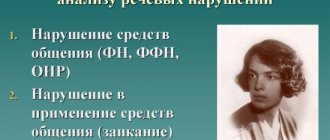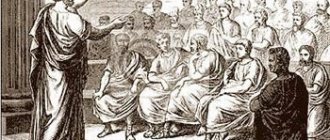Do we need oratory in our courts? Is it possible and worth learning it?
Is public speaking required in court?
In the mid-19th century, the Royal English lawyer Richard Harris (author of the best textbook on advocacy, “The School of Advocacy”) wrote:
“The art of speech, in my deep conviction, is far from receiving the attention it deserves, and in recent years a kind of absurd habit has developed of looking at it as something of secondary importance in judicial activity. But facts remain facts, and in most cases the best speaker is also the best lawyer, that is, he conducts cases with greater success.
The ability to speak is the duty of a lawyer, and in order to improve in it, one should not spare either time or labor.”
Although nowadays one also often hears that oratory is no longer required, nevertheless, it seems that the rule is fully valid even now. The better a lawyer performs, the ultimately higher his efficiency, the more interesting it is for him to work, the less he burns out.
Is it possible to learn to perform well?
The textbook example of Demosthenes, who was initially even considered tongue-tied, is known to everyone.
R. Harris and the equally good and intelligent American lawyer Francis L. Wellman (who wrote “The Art of Cross-Examination”) are unanimous that the best lawyer in England was Thomas Erskine.
Meanwhile, at the beginning of his legal career, he performed very poorly. He said that he would have quit his first business if he had not felt, as he said, that his children were tugging at his mantle. In later years he had the best English speech ever delivered by a lawyer."
F.L. Wellman gives another example.
The Irish barrister John Philpot Curran, as a jury lawyer, was of the same class as Erskine. The son of a peasant, he became a member of the High Court of Justice of Ireland.
He was small and thin, with a stuttering, rough, shrill voice, initially so different from what he later became that during his first case he was speechless and dropped all his papers on the floor, but through perseverance and experience he became one one of the most eloquent and powerful criminal lawyers in the world.
It was said of him that he could stand before a jury after a sixteen-hour deliberation with one twenty-minute break and give one of the most memorable speeches of his life.
Edmond Picard (Belgian lawyer, publicist, professor and senator) spoke about his great teacher (patron) in the legal profession: “His first attempts at defense were not successful and he was cited as an example confirming the position that only bad debuts in defense defense and bring happiness, because in the legal profession, more than anywhere else, you have to be able to start from nothing in order to become something.”
Another question that cannot but worry lawyers. What should you do - write your speech before the speech or should it be born in front of the audience?
In ancient Greece, speeches were written in advance. Moreover, in most cases they were compiled by professional lawyers and pronounced by clients.
An interesting case is described by Plutarch. For one Athenian, the orator Lysias wrote a defensive speech. When he got acquainted with her, he really liked her. But a few days later the client returned and said: “When I read it for the first time, I was delighted. When I read it again I liked it a little less, the third time I liked it even less, and now I don’t like it at all. Write me a new one." The experienced speaker responded by reminding the client that those present in the room would only hear the speech once.
In ancient Rome, orators, including the great Cicero, also tended to compose their speeches on paper. The rhetoric teacher Quintilian (author of 12 books of rhetorical instructions) also spoke about the need to prepare a speech in advance.
The most famous pre-revolutionary theorist and practitioner of judicial eloquence P. Sergeich in “The Art of Speech in Court” warns:
“Know, reader, that without writing several fathoms or arshins of paper, you will not make a strong speech on a complex matter. Unless you are a genius, take this as an axiom and prepare to speak with pen in hand. Beware of improvisation.
By surrendering to inspiration, you may miss the essential and even the most important.
You can set the wrong position and give a trump card to your opponent. You will not have proper self-confidence.
Finally, keep in mind that the winged horse can change."
King of the Russian Bar V.D. Spasovich and the no less famous and talented S.A. Andreevsky composed their speeches in advance.
A.F. Koni said that during one of the speeches V.D. Spasovich suddenly hesitated on the word “damn” and, having uttered it several times, continued. When during a break A.F. Koni asked if he felt bad, V.D. Spasovich admitted that he simply forgot what he was supposed to talk about next.
Opponents V.D. Spasovich, knowing that he was preparing everything in advance, sometimes they deliberately changed something in the text.
The words will come by themselves
No less famous and brilliant speaker, attorney at law N.P. Karabchevsky argued exactly the opposite.
A heated dish is unlikely to make the impression that can be achieved by a live speech that is born right in front of the listeners. He never wrote his own speeches.
N.P. Karabchevsky talks about the preparation of another no less great speaker - P.A. Aleksandrov (the defense attorney who gave a historical speech in the case of Vera Zasulich), which boiled down to the fact that in the evening before going to bed he walked around the room for two or three hours, having lived and savored his speech.
F.N. Plevako initially did not write down his entire speeches (he wrote in “oases,” as he himself explained). Subsequently, immediately after the debate, he began to give the manuscript to the newspaper. However, as the wonderful and very good Samara lawyer A.I. recently told me. Karnomazov (with whom he was lucky to participate in the same trial), he did not pronounce what was in the notebooks.
A.F. Koni, objecting to P. Sergeich, advises young speakers:
“Do not write speeches in advance, do not waste time, do not rely on the help of these lines composed in the silence of the office, slowly falling on paper, but study the material carefully, memorize it, think about it - and then follow the advice of Faust: “Speak with conviction, words and the influence on the listeners will come by themselves!”
French lawyer of the 19th century. De Betts says about writing preparation:
“Never write your speeches. There is a deep gulf between a speech written in advance and delivered orally... Study the matter, delve into it as much as possible; always work with analysis. Study the event with all its details, analyze all the assumptions allowed by the facts. Study the legal issues that have arisen or may arise in the case, even if it is covered incorrectly. Know the process with all its possible outcomes... And then write. Just not speech! Not a speech plan!.. No! The speech will be improvised at trial; before the trial and don’t think about her... You need to write down a strict analytical analysis of the case, an analysis for yourself; you need to bring it to perfect accuracy and consolidate your understanding of the process... You know the old saying: a question correctly posed is a resolved question... Each position must be sharpened like steel; finish only when you admit that the analysis has been brought to mathematical precision... In this note you will collect all the arguments that have objective significance in the process; do not include “oratorical arguments” there, that is, false arguments that may produce an impression, but in a strictly logical sense have no force.”
De Bets tells about one of the best French lawyers (without naming him) that he wrote his speeches. But, the author adds, he prepared eight speeches and delivered the ninth. And this last speech, which the speaker improvised during the trial itself, was the most beautiful.
And further. On those days when he delivered a prepared speech, the audience was amazed at his talent, grace, and erudition. It was a triumph for the actor. But when he allowed himself to replace a prepared speech with improvisation, the persuasiveness of the latter penetrated deeply into the minds, captivating the hearts. In these cases there was a complete victory of the speaker over the audience.
Modern American lawyer Jerry Spence (in 50 years of speaking in courts, he has not lost a single criminal case, and the last time he lost a civil case was 40 years ago) initially wrote down all his speeches from beginning to end and then, so as not to forget any of the arguments, in read them out to the court.
He lost almost every case. And when he was already thinking about changing his profession, this is what happened.
One day, during the next reading of a speech, the leaves fell and scattered. No matter how hard the speaker, flushed with embarrassment, tried to collect them, nothing worked; he could not find the right place. He heard laughter in the hall and caught the frightened look of the client.
He had no choice but to speak “in his own words.” And so he, stumbling from time to time, began to perform. And he spoke for about an hour. And when I finished, I realized that I had never looked at the notes. Some amazing strength, support, an unaccountable mind took over and chose the words.
He returned to his place tired but happy. The listeners congratulated him. The jury returned a verdict in favor of his client.
Since then, he has always performed without a piece of paper, but he prepared very hard. He spoke, thought through and wrote down his arguments over and over again. Gerry Spence (like de Betts) attributes the secret of a successful speech to careful thought of the speech.
The American lawyer believes that preparing a speaker for a speech is akin to building the Naf-Naf stone house from the famous fairy tale. He says that often while his opponents are sleeping, he continues to mentally return to the performance. There is always a notepad in front of his bed to write down new ideas and arguments.
It may be said that this applies mainly to forensic lawyers. Meanwhile, one of my lawyer friends, who very successfully conducts exclusively arbitration cases (the manager of a well-known law office) also told me that he never writes his speeches in advance, but carefully prepares for the case and performs a thorough analysis. His students told me that he forces them to do things the same way and it never occurs to them to prepare written texts).
The role of oratory for a lawyer
The term "oratory"
(from Latin oratio - speech, eloquence) of ancient origin. Its synonyms are the Greek word “rhetoric” (rhetorike) and the Russian “eloquence”.
Oratory should be understood as:
- A high degree of mastery of public speaking, high-quality characteristics of oratory, skillful command of the living word
- The art of constructing and delivering a speech in public to produce the desired effect on an audience.
Most people have an expression such as “oratory”
is associated with Ancient Greece, with the time when the judicial process in its modern sense was just beginning to take shape, and the gift of persuasion and eloquence, coupled with the acting skills of the speaker, could save the accused from a seemingly inevitable punishment. However, a modern lawyer must be able to express himself correctly, accurately, logically and eloquently.
For a lawyer, certain types of speech are important depending on the function that speech performs from a social point of view, such as:
- Socio-political eloquence is, for example, a report on socio-political and political-economic topics, a reporting report, a political speech, a diplomatic speech, a political review, a propaganda speech.
- Judicial is prosecutorial or accusatory speech; advocacy or defensive speech.
- Diplomatic – speech at an international conference and speech in the process of a diplomatic act.
- Dialogical - such as disputes, discussions, disputes, conversations, business meetings, interviews, press conferences.
Investigation of criminal cases, prosecutorial supervision, provision of legal assistance to citizens and organizations (advocacy); performing notarial acts; legal work in government agencies, enterprises, institutions and organizations: the listed types of legal work also correspond to legal specialties: investigator, prosecutor, judge, lawyer, notary, legal consultant.
If we consider the main professional function of lawyers, then this is, first of all, the conduct of legal affairs.
. This is an analysis of life situations that act as separate, independent subjects of legal consideration. And all possible cases that are considered and decided in accordance with the rules of law.
The professional activities of lawyers also include the drafting of legal documents in which legally significant actions are expressed and consolidated, as well as oral presentations in competent authorities, for example, in court, arbitration, in which legal requirements, statements, petitions arising in the process of consideration are formulated and justified affairs.
Thus, oratory plays a huge role in writing. For example, when drawing up a statement of claim, it is not enough to simply describe the current situation and support it with the rules of the law; you need to do it logically, consistently, without errors.
Therefore speech
lawyer is a special form of the right to defense. The task is not easy, and therefore requires constant improvement and growth.
When choosing a legal profession, it is worth thinking about and developing such an important professional quality as oratory.
Topic 3. LOGICAL FOUNDATIONS OF JUDICIAL SPEECH
The basis of judicial eloquence is the need to prove and convince.
A.F. Horses. Techniques and tasks of the prosecutor's office
Argumentation is an operation of substantiating any judgments, practical decisions or assessments, in which, along with logical ones, speech, emotional-psychological and other extra-logical methods and techniques of persuasive influence are also used.
V.I. Kirillov, A.A. Starchenko. Logics
To help persuade judges and jurors, court speakers need to make their speech persuasive, and this requires a high level of oratory skill. In this topic, we will consider the issues of persuasiveness of judicial speech, its logic, identify logical errors and note speech means that emphasize the logic of speech.
The persuasiveness of judicial speech
The main quality of judicial speech, which is determined by its purpose, is persuasiveness - the validity of all theses and conclusions.
Conviction and persuasiveness
Persuasive speech is a speech containing thoughts supported by facts and serious arguments; evidentiary. Important factors in the persuasiveness of a speech are the speaker’s conviction in the correctness of his position on the matter and the culture of his thinking. Conviction is a strong belief in the truth of something. Where does the conviction of a judicial speaker come from? Of course, from a deep knowledge of the case materials. Remember how A.F. prepared his indictment speeches? Koni, how he became convinced of the correctness of his point of view on the case: “Having become familiar with the case, I began, first of all, to mentally build a defense (emphasis added - N.I.), sharply and definitely putting before me everything that arises and could arise according to matter of doubt, and decided to support the accusation only in those cases when these doubts were destroyed through intense reflection and from their ruins a firm conviction of guilt arose.”[36] The speaker’s conviction in the correctness of his position gives him confidence and facilitates the work of delivering a speech. This idea is expressed in the speeches of many court speakers. In a speech on the case of Ukshinsky M.G. Kazarinov said:










